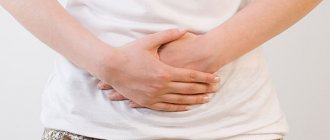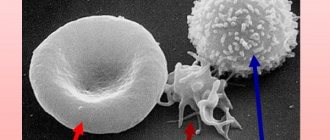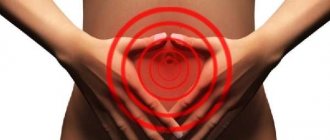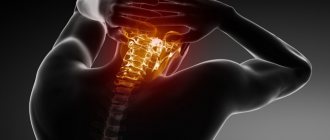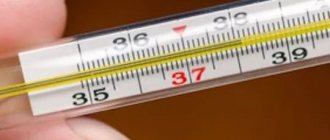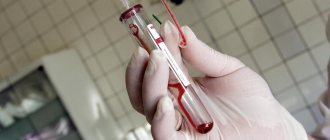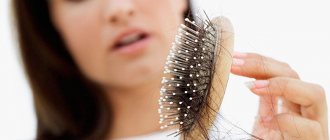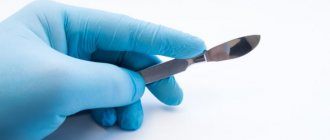Itching around the anus is a very delicate problem that is not usually discussed out loud. Most often, when such symptoms occur, a person is in no hurry to consult a doctor, as he is embarrassed to talk about his illness. He tries in every possible way to get rid of the violations on his own, sometimes resorting to the most extraordinary methods. In most cases, this practice has negative results and leads to an exacerbation of the disease and the appearance of its complications. But banal itching around the anus can indicate serious diseases of the rectum and even oncology in the initial stages. In this regard, there is no need to ignore such symptoms, that is, immediately seek help from doctors.
You can learn more about itching around the anus in men and women, the causes and treatment of the pathological condition, by studying the materials presented in the article.
What are the causes of itching
- Pathological processes developing in the rectum. This category includes external and internal hemorrhoids, papillomas on the mucous membranes, which look like cauliflower on a stalk. If itching around the anus in women is combined with bloody discharge and severe pain, then in this case we can talk about injury to the walls of the rectum, tumors of a benign and malignant nature, the presence of anorectal fistulas, prolonged proctosigmoiditis (inflammation that develops in the rectum and colon).
- Dysbacteriosis. There are “bad” and “good” bacteria in our intestines. Normally, they are in a state of stable equilibrium. As soon as immune functions are disrupted, pathogenic microflora begins to multiply, leading to dysbiosis - an imbalance in the intestinal microflora. The main symptoms of this disorder are diarrhea, followed by constipation, flatulence, pain in the lower abdomen, itching and burning in the anus.
- Helminthiasis, or the presence of helminthic infestations in the intestines. This disease develops when roundworms, pinworms and other types of parasitic worms live in the body. The main symptom of helminthiasis is itching and burning in the anus in women. Severe inflammation of the walls of the anus, accompanied by constant diarrhea, indicates infection with giardiasis. In addition to intense itching, women also experience a rash in the anal area and on the genitals. Night itching is usually a concern when the body is affected by pinworms.
- Infectious pathologies developing in the genitourinary system, sexually transmitted diseases. Usually, constant itching bothers women if they suffer from pediculosis (caused by pubic lice), chlamydial infection, thrush, trichomoniasis, gonorrhea (purulent inflammation of the urinary tract).
- Dermatological diseases. The reasons that lead to itching in the anus in women may lie in skin pathologies - psoriasis, dermatitis of various origins, seborrheic dermatosis in chronic form (indicated in the photo).
- Ignoring hygienic care, violating sanitary standards. Itching in the anus and intimate area can occur when using hard toilet paper, wearing synthetic and too tight underwear, or ignoring care for the anus and genitals.
- Anal sex.
- Allergy. Women may experience itching in the anus due to intolerance to certain foods, medications, or prolonged contact with an irritant.
- Diseases of internal organs, autoimmune pathologies. This symptom can be caused by: dyskinesia of the gallbladder, pathologies of the pancreas, liver disease, deficiency of vitamins and minerals, gastritis in acute and chronic stages, diabetes.
- Depilation in the anogenital area.
- Obesity, overweight. Girls and women with greater weight, as a rule, experience increased sweating, which leads to diaper rash, pain, and itching in the perineum and anus.
- Elderly age.
What else causes itching in the anus of girls? Psychological problems can also cause symptoms.
Anxiety, stressful situations and other mental disorders lead to a weakening of the immune system, which causes increased sensitivity of the mucous membranes to even the most minor irritations. As a result, the woman feels severe pain and itching in the anus.
Accurate diagnosis
To determine the cause of the itching, you need to contact a proctologist. At the appointment, the doctor draws up a chart of the patient’s complaints. Includes the time of onset of itching, indicates the presence or absence of dependence on the phase of the day, and lists the accompanying symptoms.
Next, he examines the skin around the anus, examines its color, and identifies cracks or bleeding areas. After this, he prescribes tests for the presence of worms and hidden blood in the stool.
In case of negative results, a colonoscopy is performed, which will identify internal hemorrhoids and polyps in the rectum. After the procedure, you will definitely know why the skin around the anus is so itchy.
Based on the results of laboratory tests, the proctologist can write a referral for a consultation with a gastroenterologist or infectious disease specialist. These specialists also consider the causes of burning and itching in the anus in an adult or child.
Prevention measures
To avoid such a problem as itching in a woman’s anus, preventive measures should be followed. Here are the main ones.
- Use only soft toilet paper to avoid damaging the anal mucosa.
- After going to the toilet, you should rinse your anus. This should be done in this direction - from the anus to the perineum.
- Eat right. Include vegetable and fruit foods, fermented milk products, cereals, and meat in your diet. This will prevent constipation and preserve beneficial intestinal microflora.
- If you feel tightness or dryness in the anus, lubricate this area with Vaseline-based oil or nourishing cream (better for children). This will avoid unpleasant sensations.
Diagnosis of the cause and treatment regimen for itching in the anus
When the anus itches and acute itching in the anus in women is felt, tests are prescribed to determine the cause and subsequent treatment.
After conducting an initial examination, the specialized specialist carefully listens to the patient’s complaints. Based on information about the intensity and duration of itching, the doctor prescribes clinical studies.
It is necessary to donate blood for biochemistry and glucose, as well as calla stools for the presence of worm eggs, pathogenic bacteria and occult blood.
Based on the data obtained, the proctologist refers for additional examinations, for example, ultrasound of the abdominal cavity, colonoscopy, sphincterometry and others.
Wellness therapy is selected taking into account individual indications.
- For hemorrhoids, general and local therapy is used. The basis for eliminating inflammation around and inside the anus in women, regardless of the cause, is phlebotonics, which normalizes blood flow. These include Troxevasin, Detralex, Phlebodia, Normoven, Aescusan. In addition, painkillers (for example, Analgin) and local remedies (Relief ointments and suppositories, Proctosan, heparin-based medications) are prescribed. If conservative therapy against hemorrhoids is powerless, surgical methods are used. These are sclerotherapy, infrared photocoagulation, laser exposure. Today, these techniques are practically painless, and rehabilitation lasts several days.
2. Infection with parasites is treated with anthelmintic drugs - Levamisole, Mebendazole, Albendazole, Niclosamide and others. The dosage is prescribed according to age, weight and degree of neglect. Medicines paralyze parasites and have an immunomodulatory effect. In order to finally get rid of helminths and forget about the desire to itch near the anus, it is important to follow prevention. You need to thoroughly wash your hands, clean your nails, change your underwear and bed linen on time, and also do wet cleaning of the room.
3. Irritation due to gynecological diseases is relieved with the help of vaginal and rectal suppositories - Polizhinax, Terzhinan and other antibacterial drugs.
4. Allergic reactions near the anus are eliminated with the help of antihistamines (Claritin, Suprastin, Lomilana). Allergic itching of the anus can be completely eliminated only by identifying the causative agent. To avoid the recurrence of symptoms, it is important to exclude provoking factors - some foods, chemicals with fragrances and dyes, synthetic clothing.
In general, any proctological problem is solved using an integrated approach. These are various tablets, suppositories, ointments, as well as physiotherapy. It is important to remember: the longer you wait to see a medical professional, the more difficult it will be to recover.
Additional Tips
- You can also apply Vaseline to the itchy area using a cotton pad.
- Add flax seeds to your meals as they are a rich source of fiber.
- You can take an oatmeal bath by adding 1-2 cups of cooked oatmeal to a warm bath of water and soaking in it for 15-20 minutes. Do this once a day to relieve yourself of anal itching.
Popular articles
- Seizures in the corners of the mouth
- Hidrosis - impaired sweating
- Ingrown toenail removal
- Cellulitis of the maxillofacial area
- Bumps on legs
Treatment
Treatment of anal itching is a labor-intensive and lengthy process. First of all, it is necessary to treat the underlying disease.
- Diet therapy and exclusion of foods that provoke or aggravate this condition. Smoked, spicy foods, citrus fruits, chocolate, strong coffee, and alcohol are prohibited;
- The patient is recommended to change personal hygiene products or, on the contrary, begin to follow its rules;
- It is recommended to wear not too tight underwear made from natural materials.
Medicines shown:
- Antimicrobial drugs for the treatment of infectious diseases - antibiotics for bacterial infections, antivirals for the treatment of herpetic infections, anthelmintics. Pediculosis and scabies are also eliminated if they are the causes of the disease;
- Correction of carbohydrate metabolism disorders and blood glucose levels in diabetes mellitus;
- For hemorrhoids and anal fissure, special creams, ointments and suppositories are prescribed, which have an anti-inflammatory, hemostatic, healing effect. However, you should not use them without a doctor’s recommendation, since these drugs themselves can cause itching;
- Gastroenteroprotectors (rebagitis), which will help restore the mucous membrane of the gastrointestinal tract (including its last section - in the rectum and anal area).
If necessary, surgical treatment of the underlying disease is performed.
Diagnosis of anal itching
If a person experiences severe itching that lasts for several days in a row and negatively affects the general well-being of the patient (including psycho-emotional state), it is necessary to consult a doctor. If there are obvious signs of rectal disease, you should consult a proctologist. If eggs or segments of helminths are found in the stool, consultation with an infectious disease parasitologist is indicated. In all other cases, the examination must begin with a visit to the local physician.
Stool analysis indicators
A set of diagnostic measures may include the following examinations and procedures:
- coproovoscopy (examination of stool for worm eggs);
- Fulleborn method (a method for detecting parasites in feces using a saturated sodium chloride solution);
- Kalantaryan method (enrichment with a saturated sodium solution, in which helminth eggs float to the surface);
- anorectal and perianal scraping (performed with a cotton swab moistened with a 50% glycerin solution or 1% soda solution);
- colonoscopy (endoscopic examination of the intestines);
- blood test to measure sugar levels and liver enzyme activity;
- test for glucose tolerance and insulin resistance (to exclude diabetes mellitus);
- flora smear (to exclude sexually transmitted infections);
- Ultrasound of the abdominal organs.
For analysis, stool should be collected after spontaneous bowel movements; an enema or laxative should not be used
If necessary, an additional consultation with a neurologist, endocrinologist, urologist and gynecologist is prescribed.
Causes
Possible causes of anal itching that are not a symptom of the disease:
- A crack in the skin in the anal area as a result of defecation, mainly due to constipation;
- Allergy to household chemicals, soaps, gels, laundry detergent;
- Insufficient adherence to intimate hygiene rules. Sweating and remaining fecal particles irritate the anal mucosa, causing itching.
In all of these cases, the itching disappears after eliminating the cause, which is the irritant. If discomfort remains, then itching signals a possible disease.
Folk remedies
The obsessive feeling of itching can be reduced with the help of various herbs and natural products. The following recipes work well for this:
- Chamomile and calendula baths. You need to take 2 tablespoons of herbs and pour a liter of boiling water. The product is infused for 2-3 hours and added to the bathroom.
- Ointment made from Vaseline and fresh cranberry juice. To prepare the medicine, 100 g of Vaseline is mixed with 30 ml of juice. The resulting product is used to treat the anus area.
- Flax decoction. To prepare the decoction, mix a tablespoon of seeds with 500 ml of water and bring to a boil over low heat. Take the decoction orally, 1 tablespoon three times a day.
Treatment with folk remedies gives quite good results. In addition, the use of natural products is considered safer.
Obsessive itching in the anal canal is a symptom that is rarely addressed to a doctor. It is considered inconvenient, sometimes indecent, and is often ignored. Meanwhile, itching near the anus or inside it does not occur for no reason. It may hide a serious intestinal or rectal disease, endocrine disorders and parasites.
To say goodbye to unbearable itching in an “inconvenient place” once and for all, you need to find out the reasons for its occurrence, and then select effective treatment methods.
What to do if it itches in the anus area
The first thing you need to do is go to an appointment with a qualified specialist. A proctologist, dermatologist, gynecologist, therapist, and gastroenterologist deal with this issue.
To find out the cause, the doctor will send the patient for examination (laboratory examination of urine, feces and blood, external examination of the anus using an anoscope instrument).
Depending on the diagnosis, the treatment will depend. For pathologies of internal organs and diabetes, therapy will be aimed primarily at getting rid of the underlying diseases.
Treatment of dysbiosis
If itching in the anus due to intestinal dysbiosis, then in this case probiotics will be prescribed that will eliminate the imbalance of microflora:
- Linux;
- Bifidumbacterin;
- Lactobacterin;
- Probiform, etc.
If the source of discomfort is dermatological diseases, then the doctor will prescribe ointments, creams and gels that eliminate inflammation and dry the affected area (Hydrocortisone, ointment based on salicylic acid and zinc).
Severe, which occurs as a result of an infectious lesion, requires treatment with antibacterial drugs.
Treatment of mycoses
Fungal infections (mycoses), or anal candidiasis, are treated with:
- fugicidal ointments - Lamicon, Clotrimozole, Lamisil;
- disinfectants – iodine (solution), Fukortsin;
- systemic drugs – Flucanozole, Ketoconazole;
- suppositories - Pimafucin, Miconazole.
How to get rid of helminths
When infected with helminthiasis, the doctor prescribes anthelmintic drugs with a broad effective mechanism:
It is mandatory to take absorbents - Atoxil, Enterosgel, Polysorb, Smecta, white, black activated carbon. These drugs coat the intestinal mucosa and absorb toxins.
Allergies and mental illness
If it itches due to allergies, then you need to be treated with antihistamines. The most effective are:
If it is very itchy due to mental disorders, then in this case sedatives are prescribed - antidepressants (Phenazepam), tranquilizers (Afobazol), herbal remedies (Novopassit, motherwort tincture, valerian, Persen), phenobarbital-based drugs (Corvalol).
If the itching is caused by hemorrhoids
If the cause is inflammation of hemorrhoids, then the doctor will prescribe:
- Celestoderm cream;
- heparin ointment;
- Gepatrombin G suppositories;
- Relief;
- Gel Troxevasin.
Local treatment methods include:
- administering a microenema containing a solution of collargol and protargol 3%;
- UV radiation;
- use of antipruritic ointments - Proctosedyl (ointment, suppositories), ointments based on heparin, prednisolone and hydrocortisone, Baneocin (ointment, powder), Triderm, etc.
Traditional methods
Treatment at home is carried out if the itching is mild. Here are the most effective methods of traditional therapy.
- Mix badger fat, medical alcohol (70%) and propolis tincture in equal parts. Place the ointment in the refrigerator. Apply twice daily to the anal area.
- Cut a candle out of a potato and insert it into the anus for 15 minutes.
- Take a sitz bath for 15 minutes based on a decoction of oak bark, chamomile, string, calendula, and birch buds.
Presence of parasites
The presence of parasites in the human intestines can cause itching in the anus. Most often, pinworms are observed in children and adolescents. Their females emerge from the anus at night to lay their eggs on the skin around the anus. If you monitor the behavior of a sleeping person at this moment, you may notice anxiety, discomfort and a desire to scratch.
A burning sensation in the anus is present when infected with roundworms and other types of helminths. In this case, bowel movement is accompanied by unpleasant sensations.
Giardiasis provokes itching due to irritation of the anus with feces and frequent diarrhea. Giardia can cause rashes to appear on different parts of the body, including the perineum.
Itching in the anus is a symptom of helminthic infection. Itching in the perianal area is caused by pinworms, lamblia, and roundworms. With ascariasis, itchy discomfort in the anus is felt after visiting the toilet. Pinworm females, laying eggs at night and in the evening in the folds of the anus and perineum, cause itching of the anus, which causes irritation. Giardiasis in men, children and women is expressed by itching around the anus, rashes, and diarrhea.
Prognosis and prevention
The prognosis largely depends on the underlying cause of the itching, so careful diagnosis is very important. In most cases, properly selected treatment helps to get rid of the unpleasant symptom.
Compliance with personal hygiene rules is of great importance in prevention. This is especially necessary in the presence of existing diseases of the gastrointestinal tract. Care should be not only thorough, but also gentle. Sometimes just washing with warm water after bowel movement is enough. After this, it is better to use soft, dry toilet paper. Many experts do not recommend using wet wipes, as they are saturated with various chemicals. The latter destroy the protective layer of the skin and can cause an allergic reaction.
Preventive measures
Prevention of anal itching requires compliance with the rules of personal hygiene, which, among other things, helps to avoid helminthic infestations. Hygienic products must be used rationally to avoid irritation of the thin skin in the anus. It is important to eat right to avoid frequent diarrhea and chronic constipation. Infectious and inflammatory diseases must be treated in a timely manner, without waiting for complications.
With timely identification of the true cause of the pathology and rational therapy, the prognosis is quite favorable. In many cases, anal itching can be dealt with in a fairly short time.
For preventive purposes, it is advisable to undergo an examination by a proctologist at least once a year. If a trace of blood is found in the stool or on toilet paper, you should see a specialist immediately. People over 50 years of age, as well as patients with a hereditary predisposition to intestinal cancer (who have relatives with cancer), need to visit the doctor more often. Timely diagnosis is the key to successful treatment.
It is recommended to use toilet paper or napkins that do not use chemical dyes or fragrances.
You should give preference to underwear made from natural (cotton or linen) fabrics.
It is very important to avoid stressful situations - psycho-emotional stress sooner or later leads to neuroses, one of the manifestations of which can be anal itching.
It is important to take laxatives only after prior consultation with your doctor!
Plisov Vladimir, medical observer
11 total today
( 188 votes, average: 4.76 out of 5)
Treatment of epithelial coccygeal duct
Proctalgia in women and men: causes, symptoms, treatment
Related Posts
Necessary actions
What should people with itching in the anus do? To make an accurate diagnosis and determine what the problem is with anal itching, you will have to visit a number of specialists. It is necessary to visit a proctologist, gastroenterologist, endocrinologist, dermatologist, for women a gynecologist, and for men a urologist. Each doctor will refer the patient for research:
- external examination of the affected skin of the anus and its scraping;
- general analysis of urine and blood;
- blood glucose test;
- biochemical blood test, where liver enzymes are of particular interest;
- stool analysis for intestinal dysbiosis;
- stool examination for parasite eggs;
- instrumental tests for examining the mucous membrane of the large intestine at different depths: anoscopy, sigmoidoscopy and colonoscopy.
When interviewing the patient, the doctor will ask:
- how long has the patient been tormented by itching in the anus;
- after which it is felt and when it intensifies;
- is there a burning sensation along with the itching;
- how long does the discomfort last?
- what time of day does itching occur?
- does it intensify after eating any food, etc.
The connection between itching and bowel movements. A possible cause of this symptom may be weakness of the anal sphincter. This is observed with hemorrhoids, postpartum and postoperative damage to the anus, rectal prolapse, or in those who practice anal sex.
Dependence of itching on nutrition. When a patient complains of discomfort in the anus after eating spicy and salty foods, as well as alcoholic beverages, the doctor may suspect proctosigmoiditis, that is, inflammation of the rectum and sigmoid colon.
Itching that develops after external influences on the anal area. This refers to the impact on a person of harmful gases, chemicals or radioactive radiation in everyday life or at work. Working in chemical plants or in rooms with elevated temperatures and humidity has a negative impact on the skin.
Systematic communication with pets. Not only keeping animals at home, but also communicating with domesticated cats and dogs can result in you contracting a helminthic infestation. Parasitic infections very often cause itching in the anus.
Genetic predisposition. The doctor will definitely ask if any of your blood relatives have endocrine diseases, obesity, diabetes, fungal infections of the skin or nails, or dyspepsia. All this information, coupled with test results, will help you find the cause of itching in the anus and begin appropriate therapy.
Causes of anal itching in children
Children experience itching in the anus due to parasite infestation. Parents begin to notice that the child often cries, walks irritated, sleeps poorly, and scratches the skin in the perianal area. A child can become infected with worms by playing with pets without following hygiene procedures.
In newborns, itching is caused by dermatitis. Pathology can develop due to wet diapers and diapers contaminated with helminth-infected feces. Itching in the anus in children often occurs during artificial feeding, since feeding with formula makes the stool alkaline. If a child is fed breast milk, the risk of developing pathology is reduced several times.
Parents should change their baby's diapers every few hours. Doctors recommend leaving the skin open for a while so that air can freely flow to the epidermis. After each bowel movement, the baby should be washed with warm water and treated with baby powder or talcum powder to avoid dermatosis.
How does the treatment work?
Itching near the anus is treated in various ways. This usually involves the use of various medications, physical therapy and surgery, depending on the extent of damage to the rectum and the cause of the problem.
Effective medications are those based on:
- Shark liver oils;
- Glycerin;
- Starch and cocoa butter;
- Zinc oxide;
- Kaolin and lanolin.
Physiotherapy lasts for 10-15 days. It comes down to influencing damaged areas to regenerate soft tissue. Often itching is the cause of rectal fissures. As a result of healing, itching occurs around the anus.
If you scratch it, the soft tissues are damaged, as a result of which the wound healing process will be prolonged in time. The skin around the anus is especially delicate and susceptible to the negative effects of external factors.
What can be treated
This list of medications does not mean that they can be used independently. Depending on the cause, the doctor prescribes one drug or another. Therefore, it is strongly recommended to consult a doctor. Self-prescription may cause an allergic reaction or become a catalyst for aggravating the situation.
Most often, proctologists prescribe:
- Relief, which are sold in the form of suppositories or ointments;
- Hepatrombin G;
- Proctosan;
- Aurobin;
- Olestesin.
These medications treat itching and the cause of it. The duration of medication use depends on the severity of the disease.
How to treat at home
It is known why people often refuse to visit a proctologist. That is why they find various methods of treatment with folk remedies. There are many recipes on the Internet, some of which are very dubious. These include the use of chili pepper tincture. Also, oral use of infusions will be ineffective. It is necessary to consider measures that are aimed at local impact.
According to information portals, self-made suppositories are the most effective for treating discomfort in the anus. However, their cost will be much higher than those purchased at the pharmacy. At the same time, doctors question the quality and effectiveness.
To make them you need:
- badger fat or any other natural fat of animal origin;
- propolis, wax or other products from the apiary;
- raw potatoes;
- healing decoctions.
This mixture will need to be frozen, first shaped into a candle. Homemade medicine does not guarantee the desired effect and may cause other side effects.
Appearance of itching
Excruciating itching in the anal area is a painful condition that can be experienced by the patient for a long or short period of time. It is accompanied by painful and unpleasant sensations. If it does not disappear after 2-3 days, then swelling and thickening of the epidermis occurs on the spot. The condition worsens when washing the perineal area with warm soapy water (manipulation is done to reduce discomfort): the person begins to suffer from severe burning and irritation.
Very often, due to itching, people actively scratch this area with their fingers, which causes scratches, the skin turns red and irritation appears on it. This condition characterizes the acute form of the disease.
Features of the chronic form: mild intensity of itching, persistence of constant symptoms (it does not stop day or night), the skin in the anus becomes very thin, wounds and scratches occur.
During the disease, remission and exacerbations constantly alternate, that is, the itching has a cyclical form. People with this problem feel constant discomfort, sleep poorly, and are in long-term depression. They also have no desire to work, they become very aggressive and irritable.
What to do? When to see a doctor?
To rule out diabetes mellitus, at the first sign of itching in the anal area, a woman is advised to donate blood for glucose levels and visit an endocrinologist.
For the period until the cause of anal itching has not been established, women are recommended to adhere to the following preventive measures:
- Eliminate spices, herbs, marinades, canned food, and smoked foods from your diet. Reduce the amount of simple carbohydrates you eat (sugar, confectionery, baked goods, chocolate, lemonade, candy, etc.).
- If you are taking any medications, then study their side effects, perhaps among them you will find itching in the anus. Consult your doctor to change or re-select medications.
- Drink only clean water (bottled or filtered).
- After bowel movements, rinse the sphincter with cool water without using detergents.
- If it is not possible to wash yourself after defecation, use only soft napkins with a smooth and uniform texture without fragrances.
- Avoid wearing synthetic panties and tight thongs. Wear loose underwear made from natural fabrics (cotton, linen, chintz, knitwear). This step will help eliminate individual intolerance and facilitate control of discharge (mucosal or blood) from the rectum.
- Give up active sex life or significantly minimize contact.
If the itching does not go away within a week (if you follow all the recommendations listed), then immediately seek medical help, since this sign is most likely a symptom of some disease.
